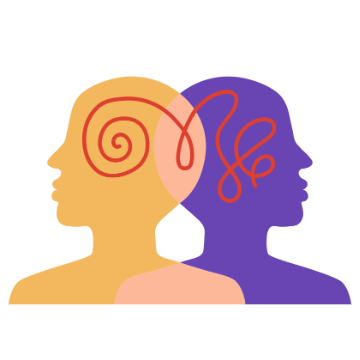Self-enrichment
Self-enrichment
Self-Enrichment
Self-enrichment is indeed a part of happiness.
Self-enrichment is the process that helps us
become a better version of ourselves and live
a more fulfilling life. It includes various
aspects such as career development,
education, family, and relationships.
become a better version of ourselves and live
a more fulfilling life. It includes various
aspects such as career development,
education, family, and relationships.


Time Management

Mindfulness

Self-love

Communication
Psychology
Psychology

Self-esteem
Self-confident
Self-confident

Other Coaching

The Advantages of
'Self-Enrichment'
'Self-Enrichment'

Self-development is a highly
beneficial process for personal and
professional growth and success.
Often, the feeling of happiness arises
from realizing that we have the ability
to develop and become a better
version of ourselves.
beneficial process for personal and
professional growth and success.
Often, the feeling of happiness arises
from realizing that we have the ability
to develop and become a better
version of ourselves.
Pomodoro
Time Management Technique

The Pomodoro Technique is a time management
technique based on the concept of 'getting more done in
less time,' which helps individuals realize that in a single
day, they can accomplish more than they currently do
and have more time for themselves and relationships.
technique based on the concept of 'getting more done in
less time,' which helps individuals realize that in a single
day, they can accomplish more than they currently do
and have more time for themselves and relationships.
Chusin Mateechaipong, Pomodoro Licensed Trainer


Write down
things you have to do or
'To-do-lists'
'To-do-lists'

Set
a timer to 25 minutes and
focus on one task
focus on one task

Check
the accomplished task in
'To-do-lists'
'To-do-lists'

Break
for 5 minutes to relax and
recharge
recharge

Psychology

Psychology is the study of the human
mind and behavior, including various
aspects of life experiences, brain
functioning, and behaviors, from childhood
to old age.
mind and behavior, including various
aspects of life experiences, brain
functioning, and behaviors, from childhood
to old age.
APA Dictionary
Understanding the principles of psychology
is essential for self-enrichment because it
helps individuals understand oneself and
others, learn emotional management, life
planning, and care for mental health.
is essential for self-enrichment because it
helps individuals understand oneself and
others, learn emotional management, life
planning, and care for mental health.
Psychology helps answer questions about things we've never understood before.
Psychology helps us accept things that are difficult to accept.
Psychology helps us understand the truth of the mind.
Psychology helps us develop ourselves to become a better version of ourselves.
Psychology
Unveiling minds
unraveling behavior
fostering growth
unraveling behavior
fostering growth

PERSONALITY
We live together in a world filled with differences.
Preventing conflicts and embracing differences.

Self-awareness

Understand other

Learn to live together
Differences
• Different interests
• Different personalities
• Different physical appearances
• Different abilities
• Different social and environmental backgrounds
• Different emotional states and thoughts
• Different needs
• Different personalities
• Different physical appearances
• Different abilities
• Different social and environmental backgrounds
• Different emotional states and thoughts
• Different needs
Living together
• Learning about differences
• Accepting differences
• Adapting to others
• Assigning tasks appropriately
• Listening to diverse opinions
• Communicating with comprehension
• Accepting differences
• Adapting to others
• Assigning tasks appropriately
• Listening to diverse opinions
• Communicating with comprehension


